 1 of 8
1 of 8
Hair, soap, food particles: It's all got to go somewhere when it gets washed down into the drain. Until, of course, it stops moving. Clogged drains are an unpleasant part of normal life, but luckily, they tend to be pretty easy to fix and you don't necessarily need the help of a plumber. Try these DIY solutions to avoid throwing money down the drain.
Steffi Kamp / EyeEm/EyeEm/GettyImages 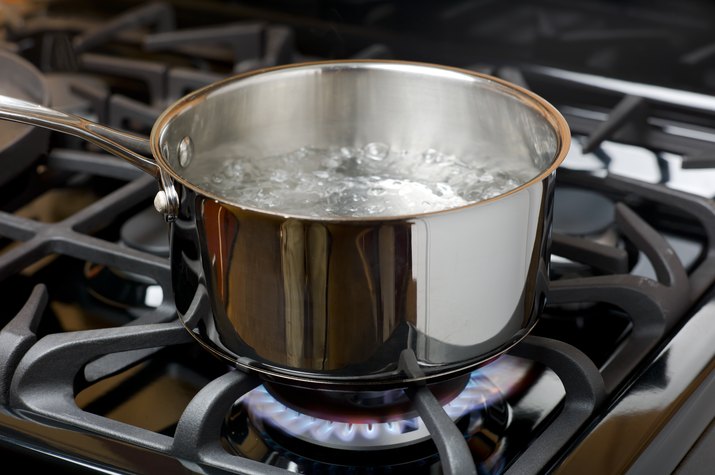 2 of 8
2 of 8
Boiling Water
Before you start raiding the kitchen cabinets and planning a full attack on your drain, figure out if the clog is a minor one. In some cases, plain boiling water is enough to sweep blockages away. Bring a pot of water to a rolling boil and quickly pour the entire pot down the clogged drain. For sinks and shower drains, this super low-tech approach might be enough to solve the problem.
RyersonClark/E+/GettyImages 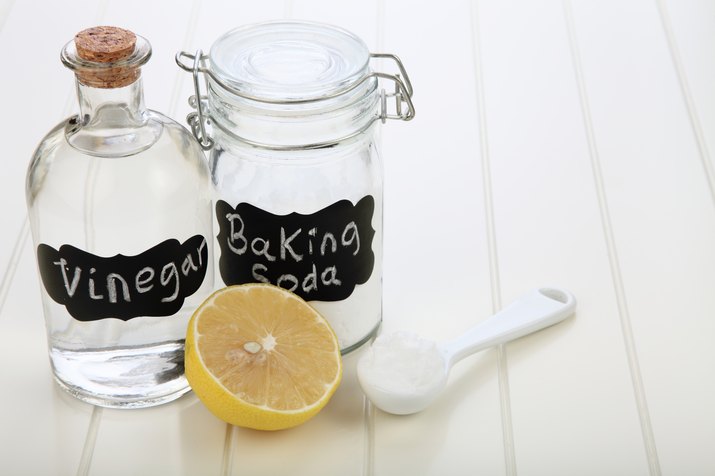 3 of 8
3 of 8
Baking Soda and Vinegar
On their own, baking soda and vinegar have limited power. But there's a reason that they're key ingredients in science-fair volcano projects: These two create a chemical reaction that produces carbonic acid, which turns into carbon dioxide gas. The resulting foamy bubbles should help eat through the clog. Pour boiling water down the drain, then baking soda and an equal amount of a vinegar/water mixture, and let the mixture work for a few minutes before flushing with more boiling water.
Eskay Lim / EyeEm/EyeEm/GettyImages 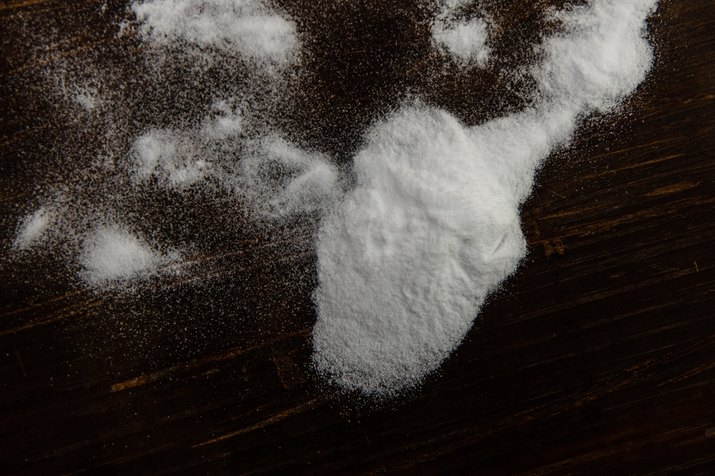 4 of 8
4 of 8
Baking Soda, Salt and Cream of Tartar
No vinegar on hand? Baking soda can still be an effective clog buster when combined with salt and cream of tartar. A mixture of equal parts baking soda and salt with an additional pinch of cream of tartar may help dislodge sink clogs. After pouring the mixture into the drain, follow with boiling water and let everything sit.
annick vanderschelden photography/Moment/GettyImages 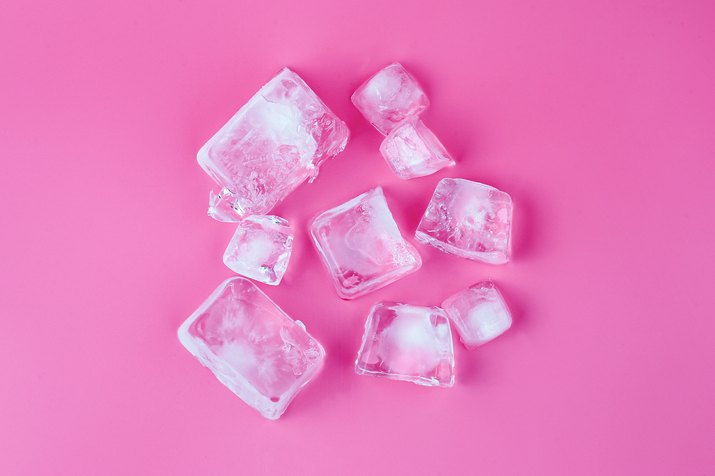 5 of 8
5 of 8
Frozen Vinegar
Full disclosure: Frozen cubes of vinegar won't really cut through tough clogs in your drains. But if your sink's garbage disposal is backing up, this simple strategy will help sharpen the disposal blades and get things moving again. Freeze white vinegar in ice cube trays. Put a handful into the disposal and turn it on until it runs smoothly.
Poh Kim Yeoh / EyeEm/EyeEm/GettyImages 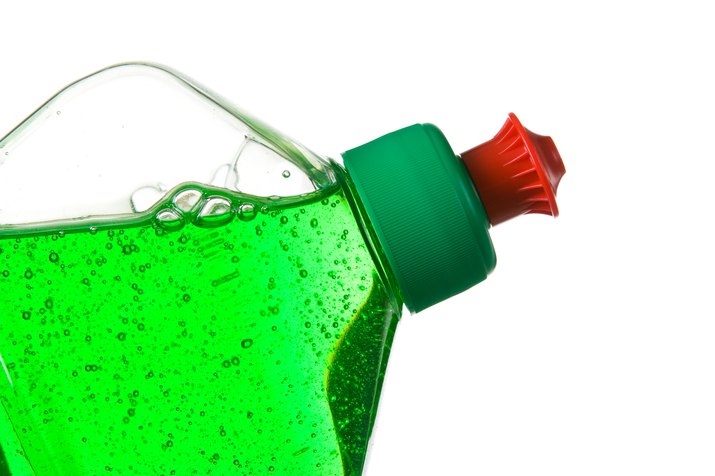 6 of 8
6 of 8
Liquid Dish Soap
For greasy clogs, like those that might be lingering in the pipes of your kitchen sink, dish soap can't be beat. It's designed to break through grease, after all. Boil a pot of water and pour in enough dish soap to make the water good and foamy. Pour the mixture down the drain and follow in a few minutes with plain boiling water.
Alex Potemkin/E+/GettyImages 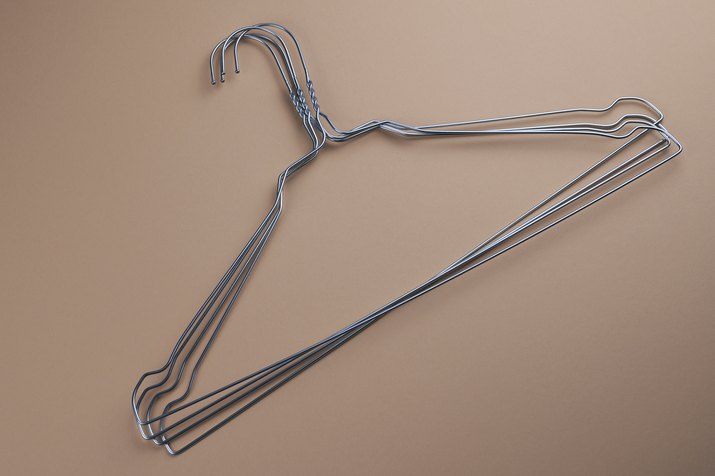 7 of 8
7 of 8
Wire Hanger
"No wire hangers, EVER!" The movie Mommie Dearest made wire hangers infamous. While it's true that they're not ideal for helping clothing keep its shape, wire hangers are perfect for sweeping clogs from shower and sink drains. Cut a hanger near the curved hook and straighten the wire as much as possible. Either retain the original hook and compress it to fit inside the drain, or create a new hook in the end of the wire, and snake it down the drain. The hook may be able to pull the clog up and out.
Norman Posselt/fStop/GettyImages 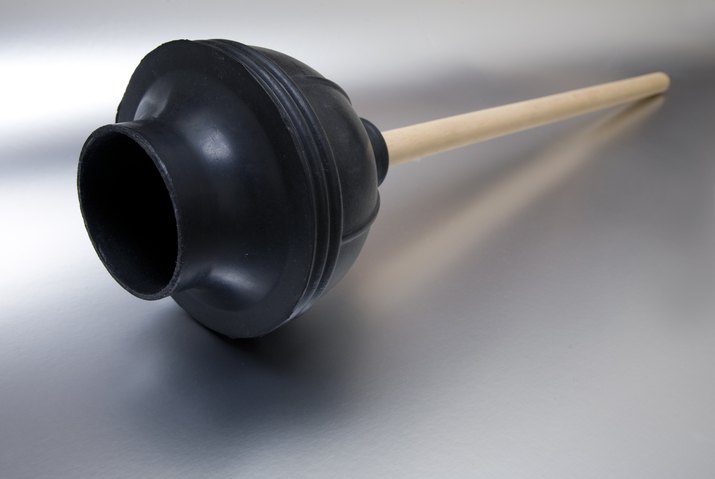 8 of 8
8 of 8
Plunger
When it comes to tough clogs, there's really no substitute for the humble plunger. Plungers work by creating suction and pressure that force water up and down in the pipes. The water that rushes through the clog should loosen and hopefully free it. Use a (clean!) plunger on your sink or shower drain, as well as on clogged toilet drains.
Maciej Toporowicz, NYC/Moment/GettyImages


